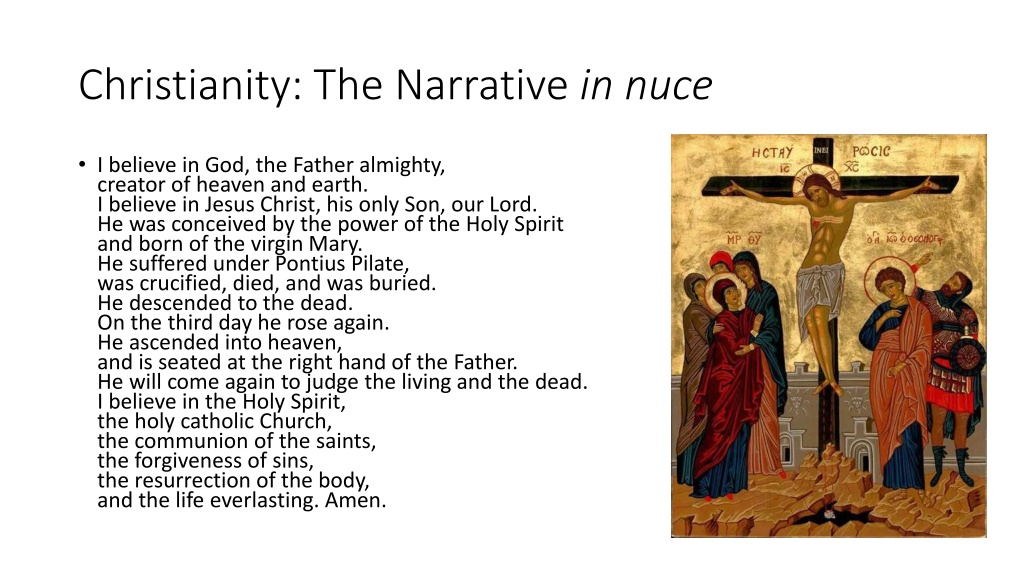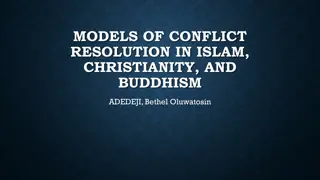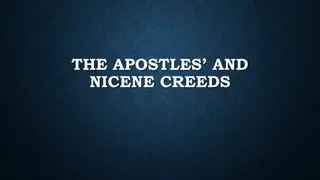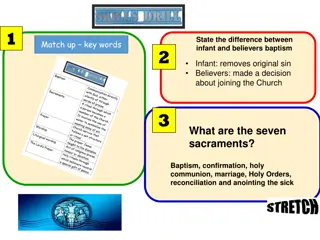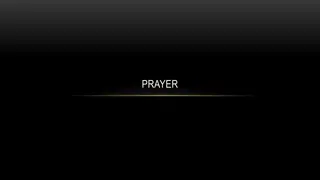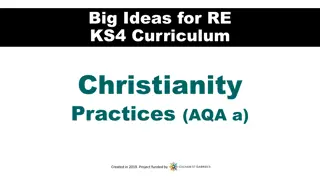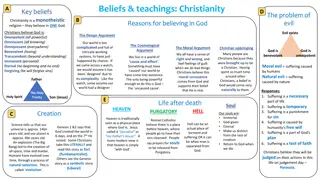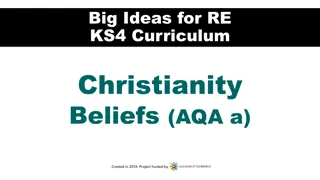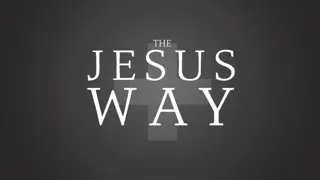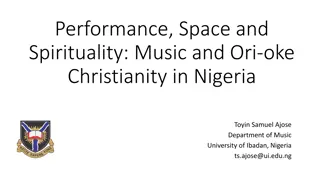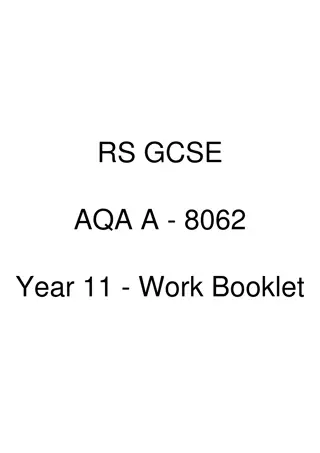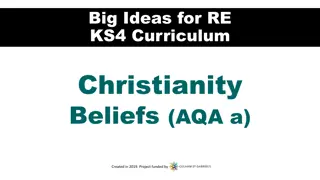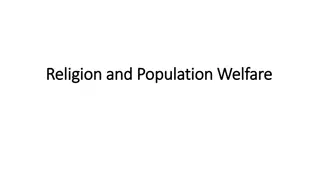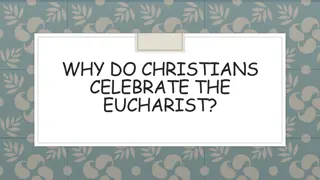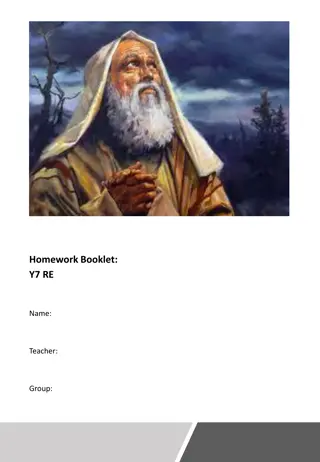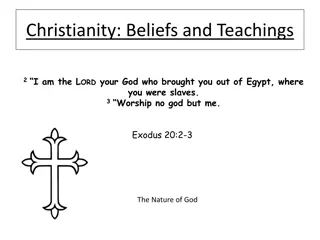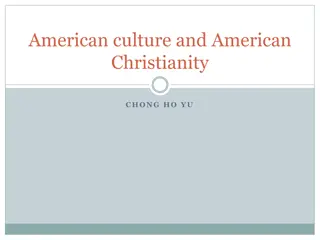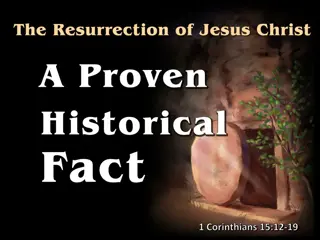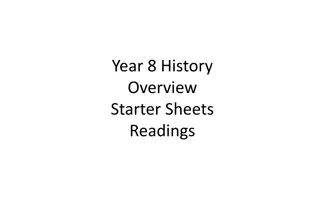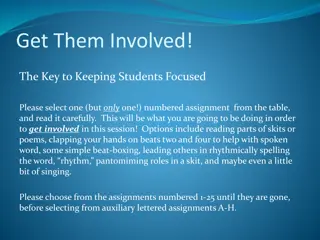Overview of Christianity: From its Origins to Historical Developments
Explore the foundational beliefs of Christianity, from the belief in God and Jesus Christ to the role of the Holy Spirit. Delve into the significance of Scripture, the rise of the Imperial Papacy, Church and Feudalism, Monasticism, and historical events like the Black Death and the Investiture Controversy. Gain insights into the evolution of Christian society and key figures that shaped its narrative.
Download Presentation

Please find below an Image/Link to download the presentation.
The content on the website is provided AS IS for your information and personal use only. It may not be sold, licensed, or shared on other websites without obtaining consent from the author. Download presentation by click this link. If you encounter any issues during the download, it is possible that the publisher has removed the file from their server.
E N D
Presentation Transcript
Christianity: The Narrative in nuce I believe in God, the Father almighty, creator of heaven and earth. I believe in Jesus Christ, his only Son, our Lord. He was conceived by the power of the Holy Spirit and born of the virgin Mary. He suffered under Pontius Pilate, was crucified, died, and was buried. He descended to the dead. On the third day he rose again. He ascended into heaven, and is seated at the right hand of the Father. He will come again to judge the living and the dead. I believe in the Holy Spirit, the holy catholic Church, the communion of the saints, the forgiveness of sins, the resurrection of the body, and the life everlasting. Amen.
Scripture Regula Fidei: Scripture and Tradition Athens and Jerusalem: Scripture and Hellenism; Philosophy and Theology Authority?: Instability of how Scripture as source of authority
Rise of the Imperial Papacy Roman Patriarch: From Pentarchy to Papal Supremacy A Holy Roman Empire: Crowning of Charlemagne (800) and the development of the Dyarchy Papal States: A Papal Prince
The Sacred Foedus: Church and Feudalism Fall of Rome (476), rise of Germanic chiefdoms, principalities, and empire Christendom as Body: Church (1stEstate), Lords (2ndEstate), Commons (3rdEstate) Church as a Lord?: Expansion of Church territories
Monasticism Monachos or Cenobite?: Development of Communal life Councils of Perfection Vow of Poverty?: Monks, property, and Spiritual Franciscans
Beyond the Realms of Death Christian Society: Church Militant (on Earth) & Church Triumphant (in Heaven) Black Death (1347-1351): rise of chantries, indulgences, purgatory Merit Theology: Papal Keys and the Treasury of Merit
Dyarchy Threatened: Papal Supremacy and Sacred Kings Investiture Controversy (1076-1122): Emperor Vs. Pope Ghibellines and Guelphs Road to Canossa?: Papal Victory as Ceasefire Thomas a Becket (1120-1170): Martyr or Meddler? (An English Example)
Pope as Monarch: Absolute or Constitutional? Reign of the Antipopes (1378- 1417) Marsilio of Padua (1275-1342): A Theory of Statecraft and the Spirituality of the Church The End of a Movement: Council of Constance (1414-1418) and return to Papal Supremacy Hussite Wars & Turkish Apocalypse Conciliarism
Reform Spiritual Franciscans: Church as Landlord or Prophet? Devotio Moderna: increased lay piety, God s fictive moral economy, do what is in you Humanism: Ad Fontes! (To the Sources!), Ancient/Modern divide, scholarly practice
On the Outside: Heretics and Jews Lollardy ( babblers ): Connection to Wycliffe, English Bibles, Moral Reform, Rejection of Transubstantiation, Oldcastle s Revolt (1414) Church of the Elect (Nicodemite) Jews: Christ-killers , Flagellants and Passion-Plays, Pogroms Jewish Expulsion from England (1290)
